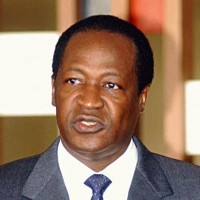A series of recent crises in West Africa have put the Economic Community of West African States (ECOWAS) in the spotlight, demonstrating the organization’s potential to shape West African politics, but also the limitations on its ability to do so. In Mali, one domino after another has fallen since a Tuareg-led rebellion began in the north of the country on Jan. 17. Junior military officers seized power in the capital, Bamako, on March 22. Tuareg rebels seized control of three major cities in northern Mali and declared independence for the territory they call the “Azawad” on April 6. In nearby Guinea Bissau, meanwhile, soldiers seized power on April 12, interrupting a presidential runoff election scheduled for later that month.
In both cases, ECOWAS has reacted swiftly at each turning point. In Mali, the group pressured military leaders to announce a transition to an ostensibly civilian government on April 12. With the transition still shaky -- despite yesterday's agreement for an extension of the civilian government's mandate -- and the junta appearing determined to retain a final say in Malian politics, ECOWAS might seek authorization from the United Nations Security Council to intervene militarily. The group has already reached a deal in Guinea Bissau to begin deploying peacekeepers to monitor the transition back to civilian rule. Through these efforts, ECOWAS is attempting to push West African coups, currently a periodic feature of the region’s political landscape, beyond the boundaries of political acceptability.
The 15-member ECOWAS, founded in 1975, has not always enjoyed a reputation for decisiveness and influence. Just more than two years ago, it proved unable to influence events in member state Niger, where President Mamadou Tandja, nearing the end of his second and constitutionally mandated final term, held a referendum to extend his time in office. Tandja disregarded ECOWAS’ objections to the vote, refused the organization’s calls to step down and ignored its decision to suspend Niger’s membership. ECOWAS-led mediation efforts between Tandja and the Nigerien opposition went nowhere. In February 2010, military officers ended up overthrowing Tandja, drawing a sharp but ineffectual protest from ECOWAS. The Nigerien military junta coordinated a civilian transition on its own terms over a period of 14 months. Today Niger, under new civilian President Mahamadou Issoufou, is once again an ECOWAS member in good standing.

